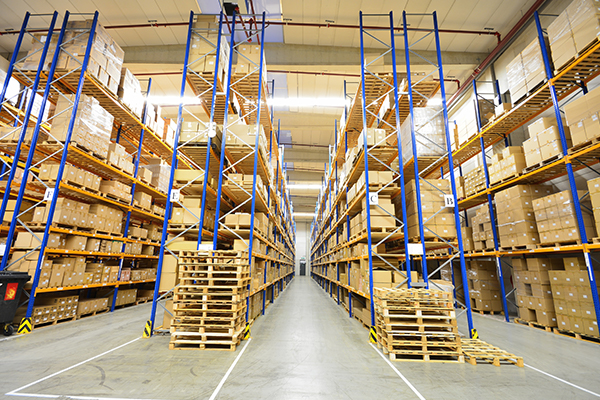In today’s fast-paced e-commerce landscape, understanding the nuances of B2B fulfillment and B2C order fulfillment is crucial for businesses. This article delves deep into the world of fulfillment services, highlighting the key differences between B2B and B2C and why these distinctions are vital for wholesale and retail operations. Read on to gain a comprehensive understanding of these two fulfillment paradigms.
What is B2B Fulfillment?
B2B fulfillment, or business-to-business order fulfillment, refers to the process where B2B orders are processed, packed, and shipped to other businesses. Typically, these are bulk orders that are sent to retailers or other b2b companies. The B2B fulfillment process often involves specialized fulfillment centers that cater to the unique needs of B2B orders, such as larger shipments and specific packaging requirements.
B2B and B2C Orders: Understanding Transactions, Purchases, and Other Terms
The world of fulfillment is vast, encompassing both B2B and B2C sectors. While they share some similarities, there are distinct differences in how each operates, especially when it comes to transactions and purchases.
A B2C transaction typically involves a direct sale to the end consumer. This could be anything from buying a book online to ordering a dress from an e-commerce store. These transactions are characterized by smaller order sizes, quick turnaround times, and a focus on individual customer satisfaction. B2C purchases often prioritize speed, with consumers expecting swift delivery of their orders.
On the other hand, B2B fulfillment deals with businesses supplying products to other businesses. These transactions can be more complex, involving larger order volumes, contractual agreements, and often, customized delivery schedules.
Interestingly, the lines between B2C and B2B fulfillment are blurring. With the rise of e-commerce platforms catering to both sectors, we’re seeing a convergence in practices. This new hybrid model, often referred to as “B2C and B2B fulfillment,” seeks to combine the best of both worlds. Businesses are now aiming to provide the speed and efficiency of B2C order fulfillment in terms of delivery times while also offering the volume and customization options typical of B2B transactions.
B2B E-commerce: Navigating Third-Party Logistics and B2B Fulfillment Services
In the evolving landscape of B2B ecommerce, businesses are constantly seeking efficient ways to streamline their operations and enhance customer satisfaction. One of the pivotal elements in this equation is understanding the role of third-party logistics (3PL). These logistics providers specialize in offering comprehensive ecommerce fulfillment solutions tailored for B2B operations. By leveraging B2B fulfillment services, businesses can ensure timely and accurate delivery of products, all while maintaining a cost-effective supply chain. As the demand for seamless online transactions grows, integrating third-party logistics into your B2B ecommerce strategy can be the key to staying competitive and meeting customer expectations.
How Does B2C Order Fulfillment Differ?
On the other hand, B2C order fulfillment, or business-to-consumer fulfillment, deals with shipping products directly to the end consumer. These b2c orders are usually smaller in size compared to b2b orders. The b2c fulfillment process is more streamlined, focusing on speed and efficiency to ensure that individual customers receive their orders promptly.
Why is Fulfillment Service Important?
Fulfillment services play a pivotal role in the ecommerce ecosystem. Whether it’s b2b or b2c, a reliable fulfillment service ensures that products reach their intended recipients in perfect condition and on time. A lapse in the fulfillment process can lead to bad reviews for the manufacturer or retailer, affecting brand reputation and customer trust.
How Does B2B Order Fulfillment Work?
B2B fulfillment works by receiving bulk orders from businesses, processing them in a B2B fulfillment center, and then shipping them out. Since B2B transactions involve larger shipments, the logistics and management systems in place are more robust. The order management system plays a crucial role in tracking and processing these bulk orders.
Is B2B Fulfillment Easier than B2C?
While B2B fulfillment handles larger orders, it doesn’t necessarily mean it’s easier. B2B orders often come with specific requirements, such as custom packaging or specific delivery windows. On the other hand, b2c order fulfillment handles smaller items and focuses on speed, making each type of order fulfillment unique in its challenges.
The Role of Fulfillment Centers
Fulfillment centers, whether catering to b2b or b2c, are the backbone of the fulfillment process. These centers store products, process orders, and handle shipping and logistics. B2B fulfillment centers often operate more like distribution centers than traditional logistics companies, given the volume and nature of B2B orders.
Wholesale vs. Retail: A Quick Comparison
Wholesale, often associated with B2B, involves selling products in bulk to other businesses. Retail, on the other hand, is more aligned with B2C, where products are sold directly to consumers. The key difference between b2b and b2c in this context lies in the order size, pricing, and fulfillment process.
B2B and B2C: Which One is Right for You?
Choosing between B2B and B2C depends on your business model, target audience, and product type. While B2B offers the advantage of bulk orders and long-term contracts, B2C provides the opportunity for a wider customer base and quicker sales cycles.
Understanding the Order Fulfillment Process
The order fulfillment process, whether B2B or B2C, involves receiving orders, processing them, and shipping them out. However, the specifics can vary. For instance, B2C order fulfillment usually prioritizes speed, while B2B fulfillment may focus on custom requirements and bulk shipments.
B2B Warehouses and Order Fulfillment: Handling Size and Complexity with Ease
In the intricate world of order fulfillment, understanding the capabilities of your provider is paramount. One of the primary considerations is the type and size of orders that an order fulfillment provider can handle. This becomes especially crucial when dealing with B2B transactions, where the demands can be significantly different from B2C operations.
B2B warehouses, for instance, operate more like specialized hubs designed to manage bulk orders and intricate logistics. Unlike typical warehouses that might handle a variety of smaller items, B2B warehouses are equipped to manage larger products, palletized goods, and even specialized equipment. This distinction is vital because fulfillment that handles smaller items, like individual consumer products, requires a different infrastructure and process flow.
The size of an order in B2B transactions can vary immensely. From bulk shipments of raw materials to specialized machinery, the spectrum is vast. This is where the prowess of a seasoned order fulfillment provider comes into play. Such providers have systems in place to efficiently manage and dispatch orders, irrespective of their size or complexity.
Interestingly, B2B fulfillment can seem daunting due to its scale and complexity. However, many businesses find it manageable with the right provider. Advanced tracking systems and automated processes facilitate this. Providers with a deep understanding of B2B needs simplify complex orders significantly.
Finding the Right B2B Fulfillment Partner
For businesses operating within the B2B sector, the intricacies of order fulfillment go beyond mere shipping. It’s a complex dance of maintaining trust, punctuality, and precision. B2B orders often come with their unique set of challenges, from handling bulk quantities to meeting specific packaging standards or delivery timelines. Hence, the importance of a reliable fulfillment partner cannot be overstated. The ideal B2B fulfillment provider should not only grasp these nuances but also boast a robust order management system. This ensures that every order, regardless of its complexity, is processed seamlessly. Moreover, a proven track record of reliability is paramount, as it directly impacts a business’s reputation and customer trust.
In essence, the right fulfillment partner is a linchpin in the B2B supply chain; choose PhaseV to ensure your operations run smoothly and efficiently!




